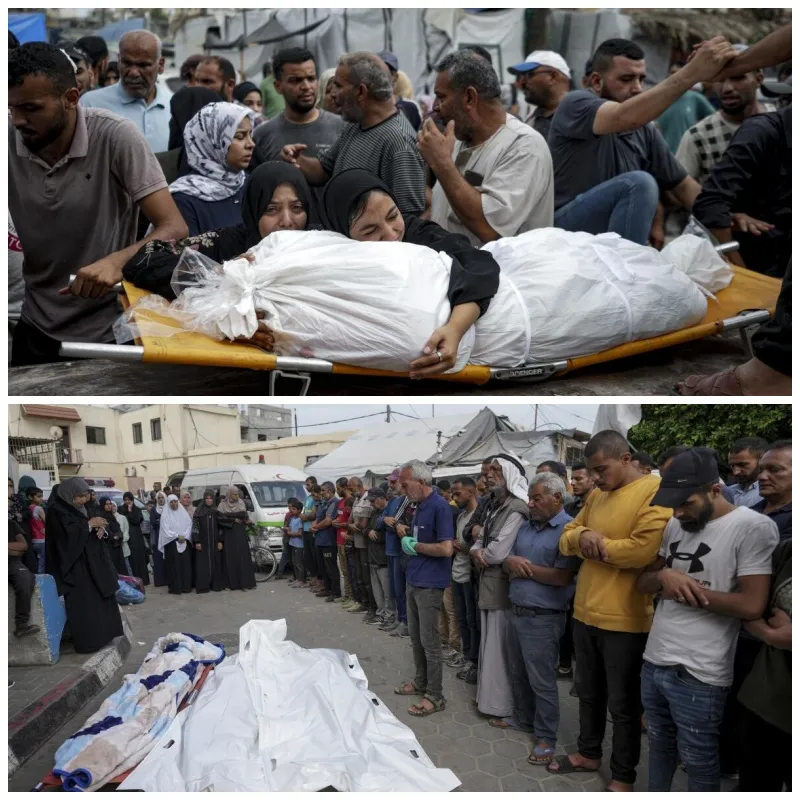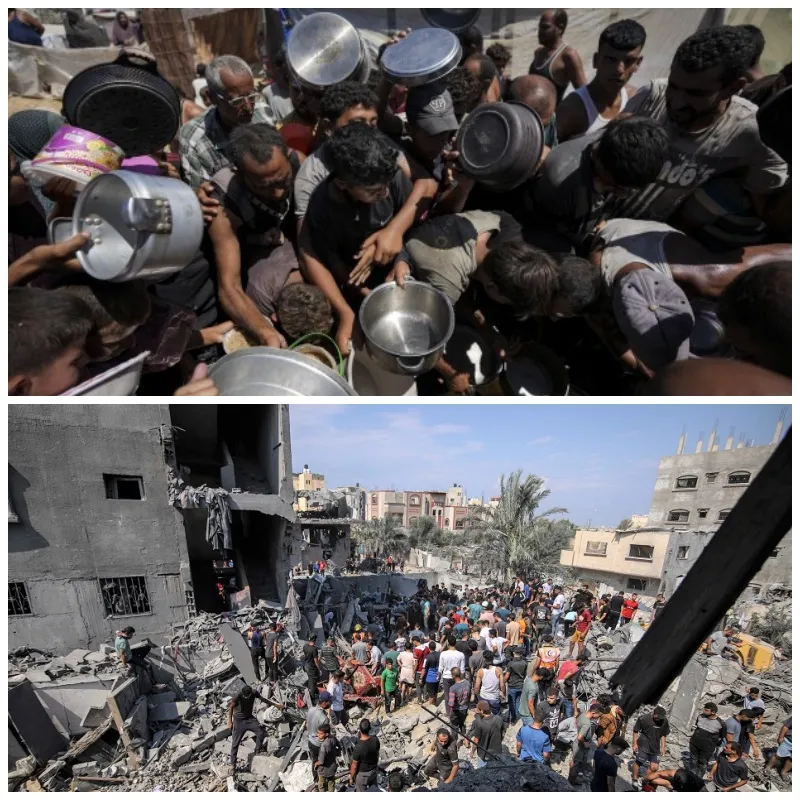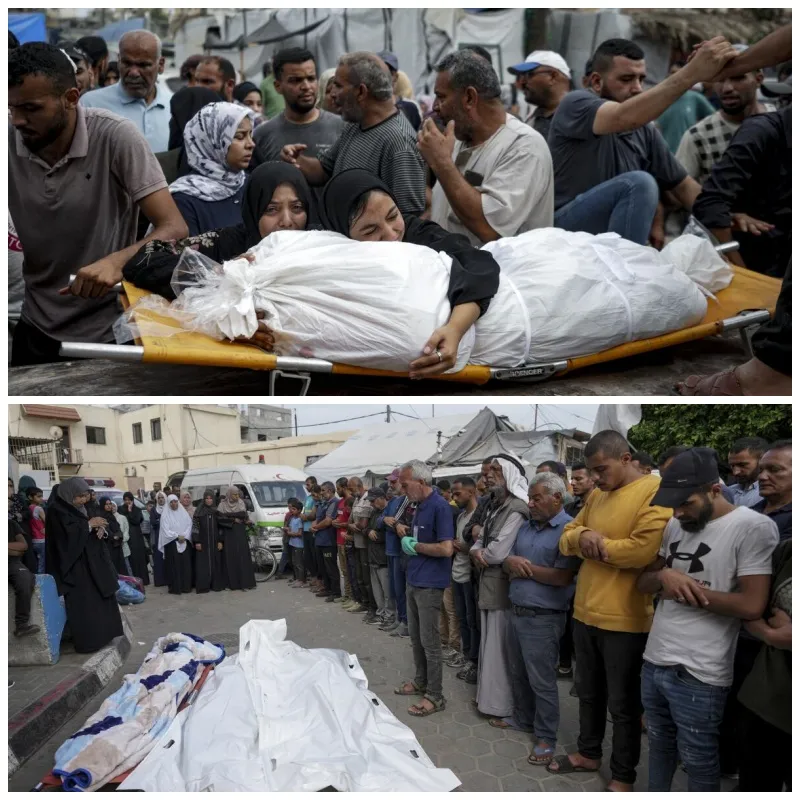
Latest Updates on the Israel-Hamas Conflict: Gaza’s Dire Situation and International Response
Israel-Hamas War: UN Reports 90% Displacement in Gaza

The ongoing Israel-Hamas conflict, which began on October 7, has led to a severe humanitarian crisis in Gaza. According to the United Nations, recent Israeli evacuation orders have displaced approximately 90% of Gaza’s 2.1 million residents. These orders, which have included 12 evacuations just this August alone, are aimed at protecting civilians but have instead intensified the suffering. The UN’s top humanitarian official for the Palestinian territory, Muhannad Hadi, highlighted that these evacuations are pushing families into increasingly dangerous and overcrowded areas, often under fire, with critical shortages of medical care, shelter, and humanitarian supplies.
Hadi stressed that the current situation violates international humanitarian law, which mandates the protection of civilians in conflict zones. The UN’s urgent call for a clear path forward includes the protection of civilians, the release of hostages, and facilitation of humanitarian access. Unfortunately, the ongoing evacuations are also jeopardizing the safety of UN personnel and disrupting humanitarian operations. For instance, the UN World Food Program recently lost access to its central Deir al-Balah warehouse, which was one of its last operational facilities in Gaza’s middle area.

Polio Outbreak in Gaza: WHO Calls for Urgent Vaccination
The World Health Organization (WHO) has confirmed the first case of polio in Gaza in 25 years, highlighting a significant health crisis amidst the conflict. A 10-month-old baby has been diagnosed with polio and is suffering from partial paralysis. This outbreak is linked to the variant found in Gaza’s wastewater, exacerbated by the destruction of medical and water infrastructure due to the ongoing conflict.
In response, the WHO, alongside UNICEF and the Gaza Ministry of Health, is pushing for humanitarian pauses in the fighting to facilitate polio vaccination efforts. The plan includes two rounds of vaccinations scheduled for late August and September, aimed at immunizing over 600,000 children. However, the delivery of vaccines has been hindered by ongoing violence and logistical challenges.
Cease-Fire Negotiations: Progress Amidst Persistent Challenges
White House national security spokesman John Kirby reported that cease-fire talks in Cairo have been making progress. The discussions, mediated by the United States, Egypt, and Qatar, are focused on resolving key sticking points, including Israel’s demand for lasting control over strategic corridors in Gaza. Despite reports of near-collapse, Kirby emphasized that constructive dialogue continues and urged both sides to work towards implementation.
The negotiation process involves high-level U.S. officials, including CIA Director William Burns and senior adviser Brett McGurk. Their efforts are crucial in bridging the significant gaps between Hamas and Israel, with the aim of achieving a sustainable cease-fire and addressing the broader humanitarian concerns.
Families of Hostages Pressure Israeli Government
In Israel, families of hostages held by Hamas are expressing frustration with Prime Minister Benjamin Netanyahu’s handling of the situation. The Hostages Family Forum, representing relatives of those abducted in Hamas’ October 7 attack, met with Netanyahu to demand urgent action. The families are calling for a cease-fire deal that would lead to the release of their loved ones. Recent revelations about the bodies of six captives found in a Gaza tunnel, reportedly with bullet wounds, have intensified domestic pressure on Netanyahu.
Israeli Strikes in Lebanon: Escalation and Casualties
The conflict has also spilled over into neighboring Lebanon, where Israeli airstrikes on Friday resulted in at least eight deaths, including a child. The strikes targeted sites associated with Hezbollah, a Lebanese militant group. The escalation in Lebanon has added to the regional instability, with Hezbollah confirming the deaths of several of its members.
Lufthansa Alters Middle East Flight Plans Amid Conflict
In response to the ongoing conflict, German airline Lufthansa has extended its suspension of flights to certain Middle Eastern destinations. The airline will resume flights to Amman and Irbil starting August 27 but has extended suspensions to Tel Aviv, Tehran, and Beirut through early September. This decision reflects the broader impact of the conflict on regional travel and safety.
In Gaza remains dire, with widespread displacement, a resurgence of polio, and ongoing conflict impacting civilians across the region. International efforts to mediate a cease-fire and address the humanitarian crisis continue, but significant challenges remain. As the conflict evolves, the global community remains focused on finding solutions to alleviate the suffering and restore stability to the region.






